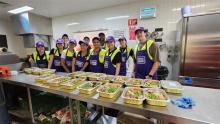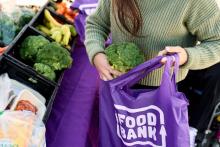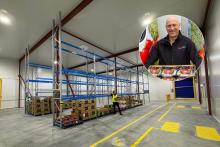Food security is a fundamental human right, yet one in 12 people across the world face hunger and in 2024, 120,000 Western Australian children were living in severely food insecure households.

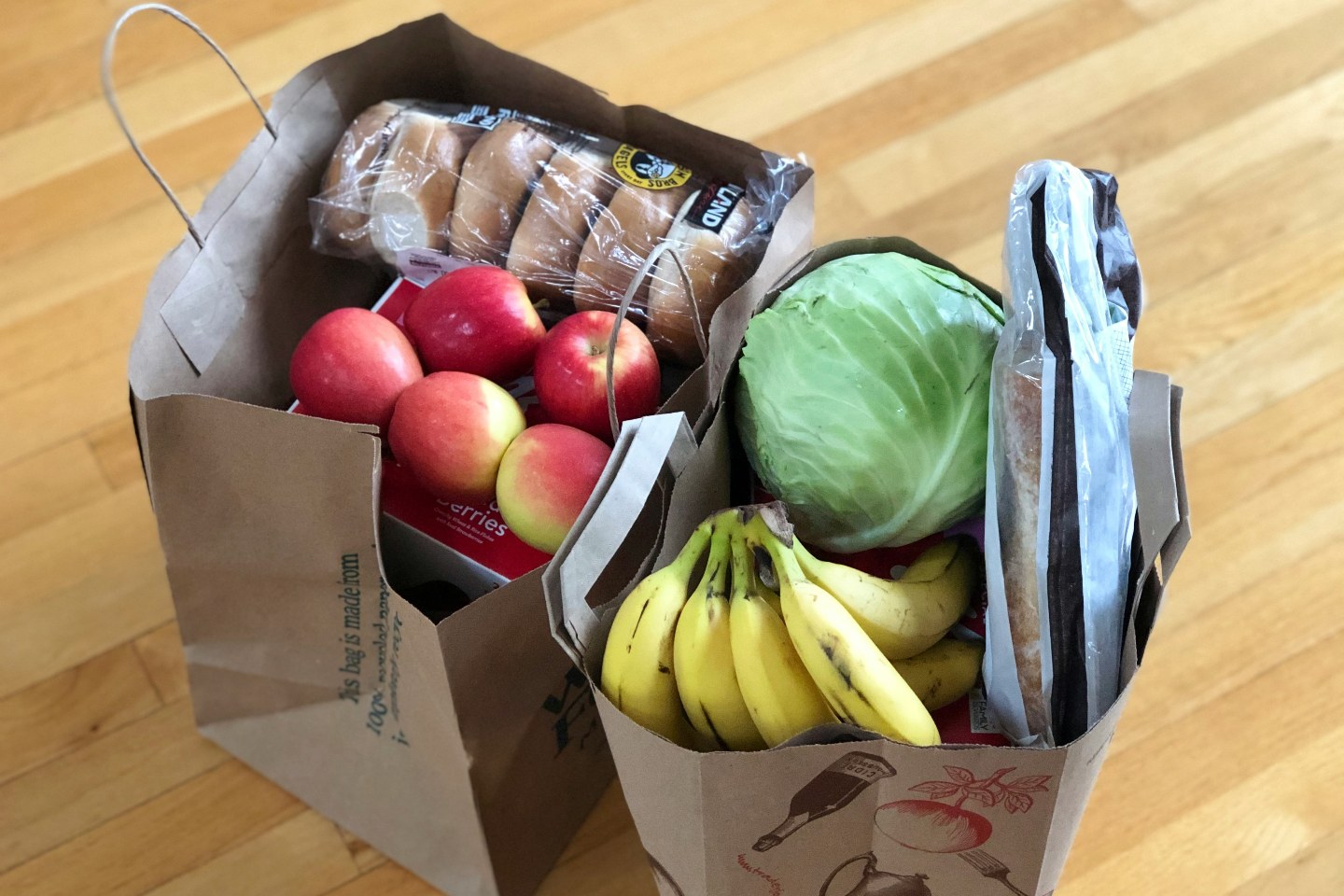
Food security is a fundamental human right, yet one in 12 people across the world face hunger and in 2024, 120,000 Western Australian children were living in severely food insecure households.
Foodbank WA provided 9.2 million meals to people across WA in the 2025 financial year and the organisation’s latest Hunger Report found that one in five people were enduring consecutive days with no food.
World Food Day, held on October 16 each year, draws attention to the alarming hunger statistics and pushes for better food security across the world.
Change of this scale is often driven by targeted local investments and in WA, organisations such as Foodbank WA and Financial Wellbeing Collective are working tirelessly to improve the state’s food crisis.
Over the past five years, 94 per cent of the emergency relief referrals provided by Financial Wellbeing Collective partners was directed toward food assistance.
“This is a clear signal that people in our community are struggling to afford the most basic essential: food,” FWC general manager Helena Jakupovic said.
“When families call our Emergency Relief and Food Access Service (ERFAS), they’re often facing their most vulnerable moment, choosing between paying rent or buying groceries, keeping the lights on or feeding their children.”

Financial Wellbeing Collective's Emergency Relief and Food Access Service (ERFAS) call centre.
FWC’s collaboration with Foodbank WA recognises the simple truth that people in crisis need both immediate help and sustainable solutions.
The partnership resulted in the appointment of an ERFAS financial support worker located on-the-ground at Foodbank WA’s airport site to provide referrals and direct people in need to other financial support services.
This approach ensures that while families’ urgent food needs are met, underlying financial challenges can also be addressed through:
- Financial counselling to manage debt, bills, and budgets,
- Referrals to additional support services, and
- Long-term financial plans to reduce future food insecurity.
Food insecurity is rarely an isolated issue and often emerges as a symptom of deeper financial distress, with households facing a variety of pressures from unexpected bills and rising debt repayments, to reduced working hours and the ongoing cost-of-living crisis.
“We need to invest in sustainable and equitable food systems to provide stability and dignity for all.” Foodbank WA CEO Kate O'Hara
“This is why our partnership with Foodbank WA is so powerful,” Ms Jakupovic said.
“We’re not just providing a band-aid solution, we’re creating a pathway to long-term stability.
“We’re ensuring that when people reach out for help, they receive both the immediate food support they need and the financial support services that can change their long-term trajectory.”
Foodbank WA’s services are also designed to assist people to keep their homes and avoid facing homelessness.
By providing food relief, the organisation helps individuals and families manage their limited resources more effectively, ensuring they can cover other critical expenses.
“We want to help people find stability and give them the hope they need to keep going in the face of adversity,” Foodbank WA chief executive Kate O’Hara said.
“Our Hunger Report last year made it clear that it’s not just the people on the streets but the people in our street that are affected by hunger.
“We need to invest in sustainable and equitable food systems to provide stability and dignity for all.”
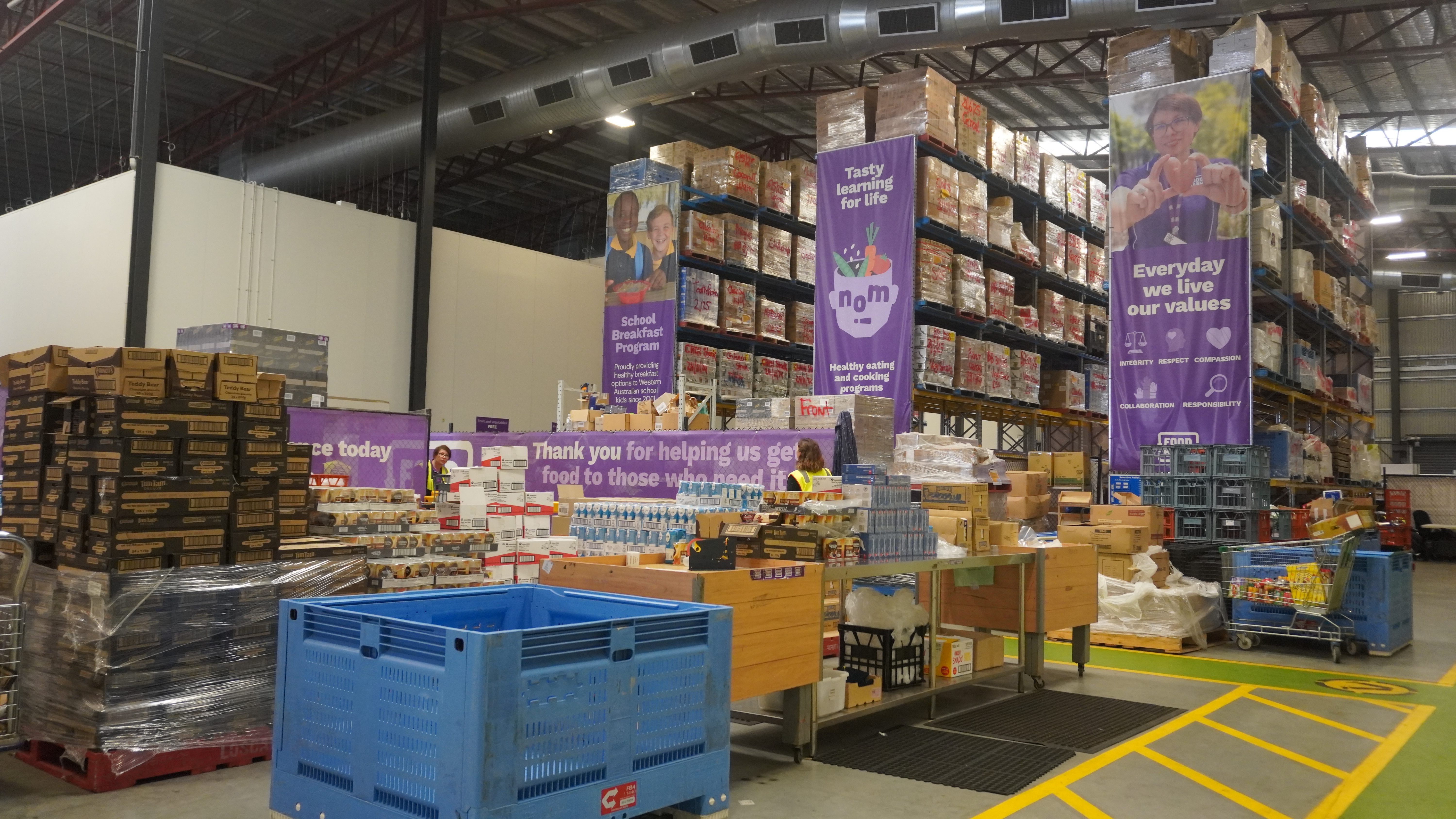
Foodbank WA's warehouse at Perth Airport offers affordable food and other goods for those in need.
Ms O’Hara said too many families were struggling to put food on the table.
“At Foodbank WA, we see the impact of food insecurity on individuals and families,” Ms O’Hara said.
“The face of hunger is diverse, affecting people from all walks of life.
“We are dedicated to feeding, educating and advocating for those in need, ensuring that no one in our community goes without the nourishment they deserve.”
FWC supported 13,280 people across Western Australia, answering 37,333 calls for emergency relief in the 2025 financial year.
“Whether through program sponsorship, employee giving initiatives, or strategic partnerships, there are meaningful ways to make a measurable impact.” Financial Wellbeing Collective general manager Helen Jakupovic
As part of its World Food Day advocacy, the collective is calling for:
Strengthened partnerships: The FWC’s work with Foodbank WA has demonstrated that collaborative approaches are more effective and by combining immediate relief with long-term financial support, the organisations are helping people move from crisis to stability.
Systemic change: While FWC provides crucial frontline services, the organisation also advocates for policy changes that address the structural issues driving food insecurity, including inadequate income support, housing affordability and access to financial services.
Breaking down barriers: Financial stress carries stigma and the FWC is working to create safe spaces where people can seek help with dignity and without shame.
Recognising immediate support of food relief as a first step: When people are under financial stress, the variable that can be addressed quickest is the cost of food. Food relief lightens the distress being experienced and reduces a person’s overall costs, allowing FWC’s financial support advisors to be able to work with clients through other cost areas to navigate the person back to self-sufficiency.
Ms Jakupovic said there were opportunities for the business sector and other organisations to contribute to solutions to the food crisis.
“By funding programs that tackle both food insecurity and financial capability, you’re not just providing immediate relief, but investing in long-term community resilience and breaking the cycle of poverty,” Ms Jakupovic said.
“Whether through program sponsorship, employee giving initiatives, or strategic partnerships, there are meaningful ways to make a measurable impact.”
On World Food Day, it is important to remember that food security and financial wellbeing are inseparable and when they are addressed together, it creates lasting change.








